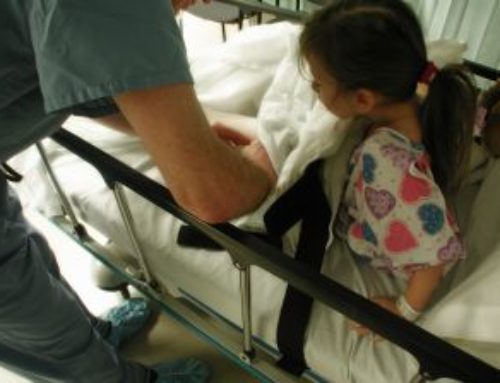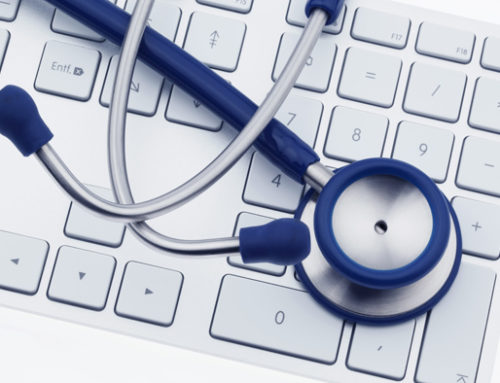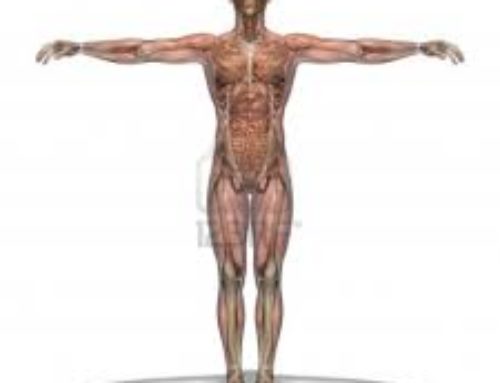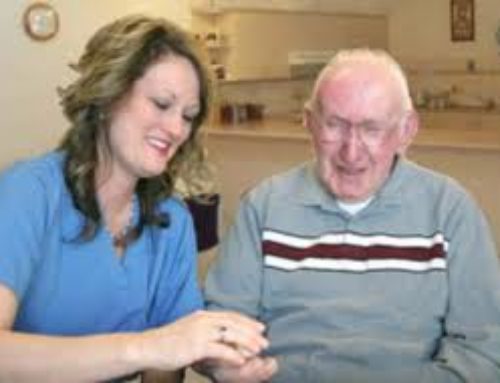
Many people feel depressed at some time or another in their lives, and these feelings usually involve sadness, unhappiness, hopelessness or general feelings of despair. When these feelings remain for extended periods of time, they can be symptoms of clinical depression, a mood disorder where feelings of anger, loss, frustration and sadness dominate and interfere with everyday life.
Depression appears to be more common in women than men, however it is not clear whether this is because the prevalence of depression is higher in the female population, or because women are more likely to seek help. Depression is an extremely common condition. It affects around 1 in 20 Australians and occurs most often in adolescence. Commonly, people with depression experience persistent sadness, feelings of worthlessness and an overall loss of interest or enjoyment in life. People can also suffer from physical symptoms of depression such as headaches, blurred vision and constipation.
Depression is usually triggered by a stressful or traumatic life event such as the death of a loved one or battling chronic illness. Treatment depends on the severity of the condition, but usually involves a combination of medication and therapy. Healthy lifestyle habits can help prevent depression, and can also reduce the likelihood of depressive episodes returning. These habits include eating a well balanced diet, sleeping adequately, exercising regularly, learning to relax, drinking alcohol responsibly and not using illicit drugs. Finding healthy ways to deal with stress, such as counselling or just talking about how you are feeling, can also help to reduce the risk of becoming depressed.
Symptoms
There are many symptoms of depression, often they include:-
- Anxiety, agitation and irritability
- Feelings of guilt, worthlessness, helplessness and hopelessness
- Loss of interest or enjoyment in life
- Persistent sadness and negativity that may lead to thoughts of suicide or death
- Poor concentration or problem solving skills
- Insomnia or over-sleeping
- Poor appetite
- Fatigue
- Drug or alcohol abuse
- A drop in school performance
- Self-deprecation, belligerence or defiance. This is especially common in adolescents.
- Depression can also have physical symptoms such as headache, back pain, stomach pain, constipation and blurred vision
There are four main types of depression. These include:-
Major depression
In this case people experience at least five of the above symptoms for more than two weeks. In most cases symptoms tend to continue for six months or more.
In this case people experience at least five of the above symptoms for more than two weeks. In most cases symptoms tend to continue for six months or more.
Minor depression
In this case, a person has between two and four of the above symptoms for at least two weeks.
In this case, a person has between two and four of the above symptoms for at least two weeks.
Atypical depression
Approximately 30 percent of people with depression suffer from this type. People with atypical depression often feel weighed down and have a strong aversion towards rejection. Specific symptoms of this type include over-eating and over-sleeping.
Approximately 30 percent of people with depression suffer from this type. People with atypical depression often feel weighed down and have a strong aversion towards rejection. Specific symptoms of this type include over-eating and over-sleeping.
Dysthymia
This condition shares the typical symptoms of depression but tends to be longer in duration and less severe than major depression.
This condition shares the typical symptoms of depression but tends to be longer in duration and less severe than major depression.
Other types of depression include:-
Postpartum depression
This is a form of depression that can affect women, and less commonly men, after having a child. It is also known as postnatal depression and symptoms can include sadness, low self-esteem, emptiness, and feelings of inadequacy, especially in regards to taking care of the baby. In postpartum depression these symptoms usually surface within one year of giving birth.
This is a form of depression that can affect women, and less commonly men, after having a child. It is also known as postnatal depression and symptoms can include sadness, low self-esteem, emptiness, and feelings of inadequacy, especially in regards to taking care of the baby. In postpartum depression these symptoms usually surface within one year of giving birth.
Premenstrual dysphoric disorder
This condition is also known as premenstrual syndrome (PMS). The cause of premenstrual dysphoric disorder is unknown, but it occurs in females during the period between ovulation and the onset of menstruation. The condition can have many symptoms including feelings of anger, anxiety, depression, headaches, fatigue and lethargy, changes in appetite or cravings, breast swelling and tenderness, constipation and decreased ability to concentrate.
This condition is also known as premenstrual syndrome (PMS). The cause of premenstrual dysphoric disorder is unknown, but it occurs in females during the period between ovulation and the onset of menstruation. The condition can have many symptoms including feelings of anger, anxiety, depression, headaches, fatigue and lethargy, changes in appetite or cravings, breast swelling and tenderness, constipation and decreased ability to concentrate.
Seasonal affective disorder
This is a mood disorder that is characterised by depression, severe lethargy, over-sleeping and over-eating. This condition occurs seasonally, and can recur every year, most often during the winter months, and may be due to a lack of sunlight.
This is a mood disorder that is characterised by depression, severe lethargy, over-sleeping and over-eating. This condition occurs seasonally, and can recur every year, most often during the winter months, and may be due to a lack of sunlight.
Causes
There is no specific known cause of depression. Clinical depression is often triggered by significant life events, such as the death of a loved one, experiencing trauma, or battling a chronic illness. Sometimes however, depressive episodes can occur for no apparent reason, at a time when everything appears to be fine.
Many other factors can lead to depression, such as underlying disease, hormonal imbalance, food allergy and adverse reaction to medications. By visiting a health care professional it is possible to identify whether there are an underlying causes for your depression and the best way to treat it.
Diagnosis
If you are feeling depressed then your doctor will ask questions about the way you are feeling, and will look for the symptoms described above. The types of things your doctor may ask you about include:-
- Your depressive moods and other symptoms such as sleep patterns, appetite, concentration and energy levels
- The different type of stressors in your life, and whether you have any support systems in place
- Your drug and alcohol history, and whether you are taking any medications
- If you have ever had any suicidal thoughts
If it appears that you are suffering from depression, then a complete medical history, physical examination and psychiatric review will be performed in order to classify your depression as mild, moderate or severe. The degree of depression influences how you are treated. These tests can also be used to see if there are any underlying, treatable causes of your depression, such as alcohol abuse or an underactive thyroid.
Treatment
The treatment of depression varies depending on its severity. For example, counselling and self-care measures may be adequate to treat mild depression, while using a combination of antidepressant medications and psychotherapy best treats moderate or severe depression.
Medication
People with depression often respond well to certain types of medications. Drugs commonly used in the treatment of depression are aimed at improving mood by modulating the production or release of certain chemicals by the brain. They include selective serotonin reuptake inhibitors, tricyclic antidepressants and monoamine oxidase inhibitors.
People with depression often respond well to certain types of medications. Drugs commonly used in the treatment of depression are aimed at improving mood by modulating the production or release of certain chemicals by the brain. They include selective serotonin reuptake inhibitors, tricyclic antidepressants and monoamine oxidase inhibitors.
Psychotherapy
This involves the treatment of mental or emotional problems that may lead to depression. Treatment can include individual, group and family therapy sessions. These sessions involve talking with a therapist to help identify unhealthy thought and behavioural patterns. This can lead to learning new approaches to dealing with stress and changing the way you handle problems. Talking through unresolved issues from the past can also help with depression.
This involves the treatment of mental or emotional problems that may lead to depression. Treatment can include individual, group and family therapy sessions. These sessions involve talking with a therapist to help identify unhealthy thought and behavioural patterns. This can lead to learning new approaches to dealing with stress and changing the way you handle problems. Talking through unresolved issues from the past can also help with depression.
Electroconvulsive therapy
This procedure involves passing an electrical current through the brain while anesthetised. It is a safe and effective treatment for severe and prolonged depression and is usually done in a series of treatments. Often electroconvulsive therapy is used when depressive symptoms cannot be controlled by medication.
This procedure involves passing an electrical current through the brain while anesthetised. It is a safe and effective treatment for severe and prolonged depression and is usually done in a series of treatments. Often electroconvulsive therapy is used when depressive symptoms cannot be controlled by medication.
Natural therapies
The plant St Johns Wort (Hypericum) is an effective antidepressant. It can be useful for treating symptoms of anxiety and nervous tension as well as restoring normal sleeping patterns. Vitamin B complex, particularly when taken in conjunction with magnesium, can also help the body to deal with physical and emotional stress. The B group vitamins are found in green vegetables, whole grains, cheese and milk, or can be taken as a supplement
The plant St Johns Wort (Hypericum) is an effective antidepressant. It can be useful for treating symptoms of anxiety and nervous tension as well as restoring normal sleeping patterns. Vitamin B complex, particularly when taken in conjunction with magnesium, can also help the body to deal with physical and emotional stress. The B group vitamins are found in green vegetables, whole grains, cheese and milk, or can be taken as a supplement
When we are stressed, our body’s requirement for vitamins and minerals increases. Therefore when were are stressed it is especially important to eat a balanced diet rich in fresh fruit and vegetables, and to avoid sugar, caffeine and processed foods as this can help to balance out our moods.
Regular exercise can also help to improve mood. During exercise, our brain releases chemicals called endorphins, which can make us feel happier.
A treatment that is particularly effective for seasonal affective disorder is light therapy, which involves increased exposure to natural or artificial light.
In the event of very severe depression, or for people who may be suicidal hospitalisation is often the safest and most effective treatment option.
Risk factors
Although a specific cause of depression has no been identified, there are many factors that can increase the risk of becoming depressed. These include:-
- Family history. Having a family member with depression can increase your risk of the condition. This may be due to a genetic component, but also to learned behaviour.
- Traumatic life events such as the death of a loved one, or childhood abuse or neglect
- Severe disappointment. This may be at home or work. For children and teenagers this may be caused by parents divorcing, failing a class at school, or breaking up with a girlfriend/boyfriend
- Poor self-esteem and social skills, or negative self image. This may include negative thoughts about one’s self and life, self blame and poor social problem solving skills
- Social isolation. This is common among older people. If you are feeling socially isolated or lonely, try volunteering or getting involved in group activities.
- The use of certain medications such as sedatives or those used for high blood pressure
- Medical conditions such as hepatitis, cancer or hypothyroidism
- Nutritional deficiencies such as a lack of folate or omega-3 fatty acids
- Prolonged stress and difficulty sleeping
- Drug or alcohol abuse
- Chronic pain or illness






Leave A Comment